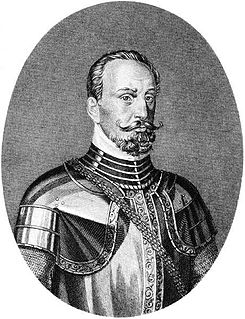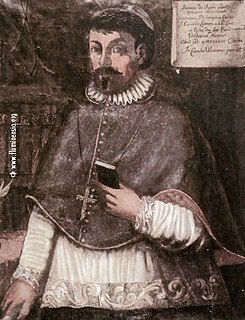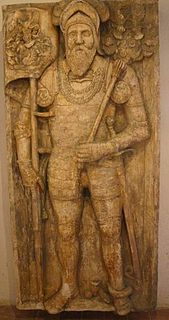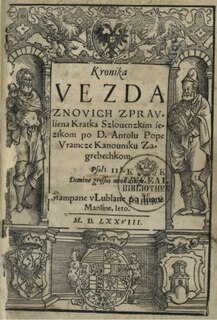 W
WGelibolulu Mustafa Âlî bin Ahmed bin Abdülmevlâ Çelebi was an Ottoman historian, bureaucrat and major literary figure.
 W
WJuraj Baraković was a Croatian Renaissance poet from Zadar.
 W
WBlaž Baromić was a Croatian printer, calligrapher, founder of the Senj printing press in 1494, the second oldest Croatian printing press. He is also known for his special typographic set known as Baromić technique of refracted ligatures, unique among incunabulas.
 W
WPetar Berislavić, a member of the Berislavići Trogirski noble family, was the ban (viceroy) of Croatia from 1513 to 1520 and also bishop of Veszprém.
 W
WGiorgio Giulio Clovio or Juraj Julije Klović was a Croatian illuminator, miniaturist, and painter who was mostly active in Renaissance Italy. He is considered the greatest illuminator of the Italian High Renaissance, and arguably the last very notable artist in the long tradition of the illuminated manuscript, before some modern revivals.
 W
WMarco Antonio de Dominis was a Dalmatian ecclesiastic, archbishop of Split and Primate of Dalmatia and all Croatia, adjudged heretic of the Catholic Faith, and man of science.
 W
WIvan II Drašković was a Croatian nobleman and politician from the Drašković noble family. He was Ban of Croatia from 1595 to 1606.
 W
WJuraj II Drašković was a Croatian nobleman, statesman and Catholic bishop and cardinal, very powerful and influential in the Croatian Kingdom. He was a member of the Drašković noble family and elected by Sabor – the Parliament of Croatia – as Ban (viceroy) of Croatia to oversee the country between 1567 and 1578.
 W
WMarin Držić was a Croatian writer from Republic of Ragusa. He is considered to be one of the finest Renaissance playwright and prose writers of Croatian literature.
 W
WCount Tamás Erdődy de Monyorókerék et Monoszló, also anglicised as Thomas Erdődy, was a Hungarian-Croatian nobleman, who served as Ban of Croatia between 1583-1595 and 1608-1615 and a member of the Erdődy magnate family. He scored significant victories in wars against the Ottoman Empire's armies.
 W
WFerenc Tahy de Tahvár et Tarkő, was a Croatian and Hungarian nobleman from the Tahy family, which draws its origins from Pilis County. He was known to have held the positions of royal adviser and master of the horse. His cruel treatment of serfs sparked the Croatian–Slovene Peasant Revolt.
 W
WMatthias Flacius Illyricus was a Lutheran reformer from Istria, present day Croatia. He was notable as a theologian, sometimes dissenting strongly with his fellow Lutherans, and as a scholar for his editorial work on the Magdeburg Centuries.
 W
WBernardin Frankopan (1453–1529) was a Croatian nobleman and diplomat, a member of the influential Frankopan noble family of Croatia. As one of the wealthiest and most distinguished aristocrats in the kingdom in his day, he had one of the leading roles in mounting defences of Croatian statehood against the Ottoman expansion.
 W
WChristoph Frankopan was a Croatian count from the noble House of Frankopan. As a supporter of King John I of Hungary during the succession crisis between John Zápolya and Ferdinand Habsburg, he was named the ban of Croatia in 1526, and died in battle fighting alongside supporters of Zápolya.
 W
WJuraj III Frankopan was a Croatian nobleman, a member of the Slunj branch of the Frankopan noble family, very powerful and influential in the Croatian Kingdom. He was proprietor of many estates and castles, among which Slunj Castle and Cetin Castle. He is best known for organizing and hosting the assembly of the Croatian Parliament in the Cetin Castle by the end of 1526, that followed a succession crisis in Croatia and Hungary caused by the death of King Louis II, which resulted in the election of Ferdinand I of Habsburg, the Archduke of Austria, as King of Croatia.
 W
WVuk II Krsto Frankopan Tržački was a Croatian nobleman and soldier of the Frankopan family, father of noted poet and politician Fran Krsto Frankopan. He was born about 1588.
 W
WMila Gojsalić is a Croatian folk heroine.
 W
WMatija Gubec, with his real name Ambroz Gubec, was a Croatian revolutionary, best known as the leader of the Croatian–Slovene Peasant Revolt of 1573. He was part of the court of three people that governed the rebels.
 W
WTrojan Gundulić was a merchant and printer from the Republic of Ragusa who is remembered for his participation in the printing of the first book in Belgrade, The Four Gospels ("Četverojevanđelje").
 W
WPetar Hektorović was a Croatian writer.
 W
WLawrence of Ilok was a Croatian-Hungarian nobleman, a member of the Iločki noble family, very wealthy and powerful in the Kingdom of Hungary-Croatia. He held the title "Voivode (Duke) of Ilok" and Voivode of Bosnia, and was during his life Ban of Macsó (1477–1492), Ban of Belgrade (1511–1513), member of the Royal Chamber Council and judge royal (1517–1524).
 W
WStjepan Konzul Istranin was a 16th century Protestant reformator who authored and translated religious books to Čakavian dialect. Istranin was the most important Croatian language Protestant writer.
 W
WBaron Nikola Jurišić was a Croatian nobleman, soldier, and diplomat.
 W
WBrne Karnarutić, (1515–1573) was a Croatian Renaissance poet. His most famous work was a historical epic on the Battle of Szigetvár.
 W
WBartol Kašić was a Jesuit clergyman and grammarian during the Counter-Reformation, who wrote the first Croatian grammar and translated the Bible and the Roman Rite into Croatian.
 W
WPetar Keglević II of Bužim was the ban of Croatia and Slavonia from 1537 to 1542.
 W
WŠimun Kožičić Benja was a Croatian nobleman, the bishop of Modruš and the founder of the Glagolitic printing house in Rijeka.
 W
WMarko Stjepan Krizin was a Croatian Roman Catholic priest, professor of theology and missionary, who was active in the 17th century. In the course of the struggle between Catholicism and Calvinism in the region then, he was executed for his faith. He has been declared a saint by the Catholic Church, the third Croat to be so honored.
 W
WPetar Kružić was a Croatian knez, captain, soldier and defender of Klis, and the captain of Senj.
 W
WFrancesco Laurana, also known as Francesco de la Vrana was a Dalmatian sculptor and medallist. He is considered both a Croatian and an Italian sculptor. Though born in the territory of the Republic of Venice, he spent his mature career at the other end of Italy, moving between Naples and Sicily, and Urbino, and finally in southern France, where he died.
 W
WIvan Lenković was a Habsburg Croatian army general and the leader of the Uskoks. He carried the title of baron. He is noted for the construction of Nehaj Fortress and as a captain of the Senj area. He also contributed in organizing the Military Frontier.
 W
WHanibal Lucić or Annibale Lucio was a Croatian Renaissance poet and playwright, author of the first secular drama in Croatian language.
 W
WGeorge Martinuzzi, O.S.P., was a Croatian nobleman, Pauline monk and Hungarian statesman who supported King John Zápolya and his son, King John Sigismund Zápolya. He was Bishop of Nagyvárad, Archbishop of Esztergom and a cardinal.
 W
WMarko Marulić Splićanin, in Latin Marcus Marulus Spalatensis and Italian Marco Marulo, was a Croatian poet and Renaissance humanist. He coined the term "psychology".
 W
WToma Niger was a Croatian humanist, diplomat, bishop of Skradin, and at the end of his life he served as the bishop of Trogir. He committed most of his life to diplomacy, trying to help crumbling Kingdom of Croatia against the Ottoman Empire.
 W
WPaul Skalich (1534–1573), also known as Stanislav Pavao Skalić or Paulus Scalichius de Lika, was an encyclopedist, Renaissance humanist, and adventurer born in Zagreb, and who lived part of his life in the Holy Roman Empire. His surname is rendered in various other ways: e.g., in English, Skalich, Scalich, Scaliger; in Latin, Scalichius or Scaligius; and in Spanish, Scalitzius.
 W
WFaust Vrančić was a Croatian-Venetian polymath and bishop from Šibenik, then part of the Venetian Republic.
 W
WAntun Vramec (1538–1587/8) was a priest and writer who wrote the first historical book in the Slovenian language. As it was the second book written in the Kajkavian dialect, he was also a founder of the Kajkavian literature.
 W
WAntun Vrančić or Antonio Veranzio was a Croatian prelate, writer, diplomat and Archbishop of Esztergom in the 16th century. Antun Vrančić was from Dalmatian town of Šibenik, then part of the Republic of Venice. Vrančić is also known under his Latinized name Antonius Verantius, while Hungarian documents since the 19th century refer to him as Verancsics Antal.
 W
WPetar Zoranić was a Croatian writer and poet from Zadar. He is most important as the author of Planine, regarded as the first Croatian novel. Pastoral in nature, the novel was written in 1538 and published in 1569. Zoranić wrote two other works, Ljubveni lov and Vilenica, but neither of these has survived.
 W
WJuraj IV Zrinski was a Croatian count, a member of the Zrinski noble family, and royal Master of the treasury from 1567 until his death in 1603.
 W
WNikola III Zrinski was a Croatian nobleman, a member of the Zrinski noble family, influential in the Kingdom of Croatia.
 W
WNikola IV Zrinski or Miklós IV Zrínyi, also commonly known as Nikola Šubić Zrinski, was a Croatian-Hungarian nobleman and general, Ban of Croatia from 1542 until 1556, royal master of the treasury from 1557 until 1566, and a descendant of the Croatian noble families Zrinski and Kurjaković. During his lifetime the Zrinski family became the most powerful noble family in the Kingdom of Croatia.